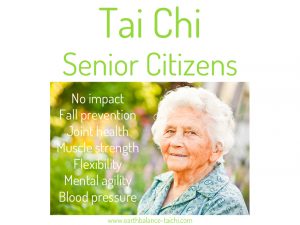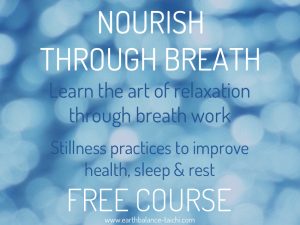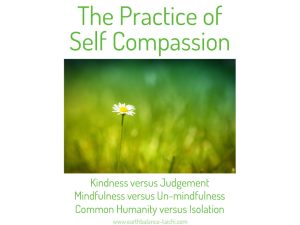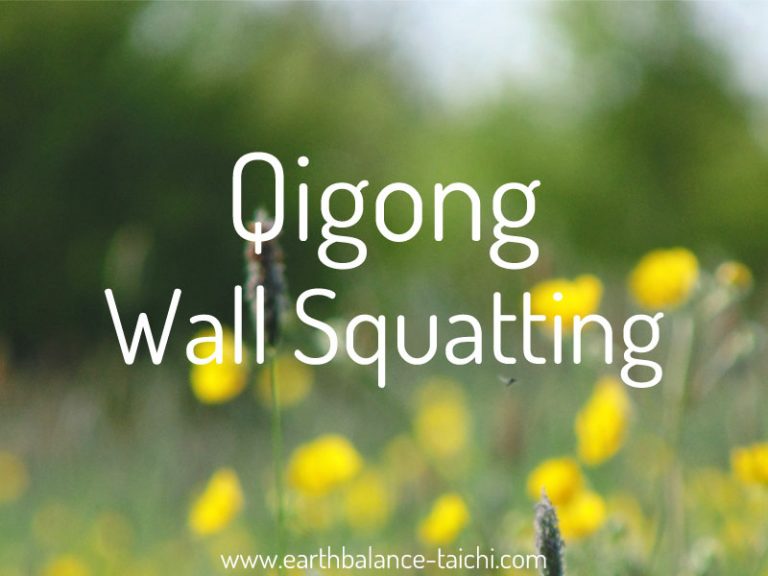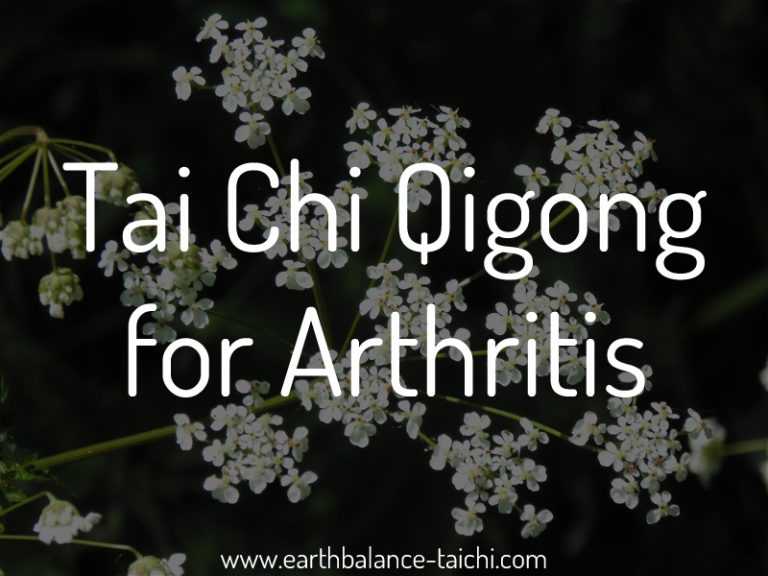Tai Chi for Dementia
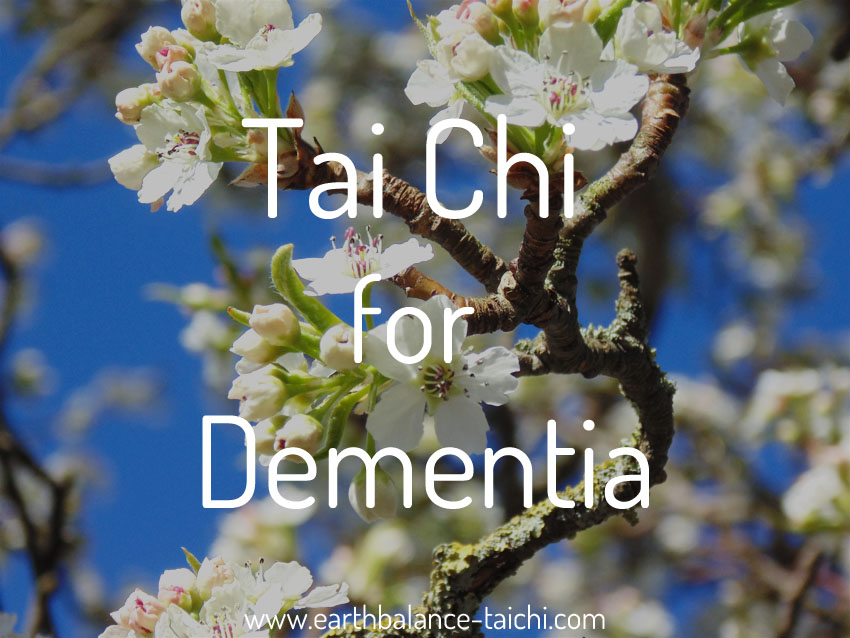
Tai Chi for Dementia
Tai Chi and Qigong are effective ways to help support people living with dementia. Here are two examples of my professional experience teaching Tai Chi, Qigong and meditation within care homes for the elderly. This article on Tai Chi for Dementia will explore if movement and meditation can aid the symptoms of dementia.
Care Home Example 1
On arrival for my weekly class, one of the residents that always takes part was in great distress. She did not know where she was, she was looking for her son and believed she was at home. The nursing staff were not able to settle her and she was pacing around the corridors in quite an agitated and upset state. The care home was a locked facility so she was safe. The other residents were waiting for me in the lounge. I had an already good established relationship with this resident and I asked the care home manager if I could try and connect with her, which they agreed. I asked this resident if she'd like to come into the lounge with me as I was there to see her. My aim when the residents are in distress is distraction, to bring their focus onto something else, rather than confronting them with where there are, who they are etc. It took a bit of gentle persuading, I told her I was her dance teacher as I knew she used to love to dance, and we joined the others together in the lounge. As soon as I started the class with gentle seated movements and relaxing music, her distress began to ebb away and her focus then was solely on me. Her body knew the movements as I had been seeing these residents for a good while, so there was familiarity and comfort that helped her even when she was so disoriented.
She used to be a dancer and loved Tai Chi and Qigong as they reminded her of her youth. By the end of the class she was back to herself, the movements and breath work had calmed her nervous system down and that focus had brought her body back into a safe space. She remember she lived in a care home, she knew where her seat in the lounge was, and where her room was, and she remembered the staff, and she even remembered me. Her whole person shifted, she was aware of her surroundings and was able to identify and recognise the environment and people. She was able to make decisions, listen and understand, and was then able to talk calmly and coherently. She returned to a state where she was able to look after herself again. Nothing else was needed aside from slow movement, breath work and focus. At the end of my classes, she would ask me if I could come again tomorrow. The care home staff were always surprised how effective Tai Chi and Qigong were at settling the residents and creating an atmosphere of calm and relaxation, without using speech. They reported that the rest of the day after their morning class was always much more grounded and centred.
Care Home Example 2
In this example, I taught weekly classes at a care home for the elderly where the majority of the residents lived with dementia. The care home manager and staff looked forward to my classes, as they knew the rest of the day would be much smoother for the residents and staff alike. One week, a couple of the residents had sadly died in the previous days, and the rest of the residents were very upset and distressed. On arrival, I could feel the atmosphere in the care home, it was palpable sadness, confusion and high stress. The care home manager informed me of what happened and was grateful for my arrival as a distraction. I went through my typical routine of gathering the residents in the lounge, and brought them together in spite of the heightened states and disorientation.
Within the class, I spent time bringing their focus towards me and their body movements. I taught a couple of extra long relaxation sessions when they were fully engaged and listening to soothing music. It amazes me how people with dementia respond so well to Tai Chi, Qigong and meditation. Our bodies will remember how to move, no matter how our minds feel, as exercise is not alien to most people. It's a great gateway into relaxation to come back into our bodies, outside of what the mind and emotions are going through. By the end of the class, the atmosphere had restored to a settled and at ease state. This created space to metaphorically pause. The residents themselves had spent an hour not thinking about what happened. They had stepped aside from their visceral emotions and feelings, which enabled their minds and bodies to come out of the stress response and settle into the rest state again. The care home manager was emotionally grateful after class, and gave me a tearful hug. I reminded her it wasn't anything I did, I was simply guided the residents into a shift of state through slow movements, focus and breath work.
What is Dementia?
Dementia is progressive condition where brain function declines. There are many types of dementia and symptoms can vary per individual. Common symptoms can result in memory loss, impaired recognition or identification, difficulty with processing, concentration, mental agility and mental cognition, changes to personality, changes to mood and emotions, loss of interest, impaired judgement, difficulty making decisions, confusion, difficulty with processes and organisation, impaired recognition or identification, dysfunctional body clock and understanding of time, difficulty speaking, reduced function to complete every day tasks, activities and routines. It's not a natural part of the aging process, although typically affects people in later years. However it can develop much earlier in life. The symptoms of dementia increase over time, as the brain function declines. The NHS website states "1 in 11 people over the age of 65 have dementia in the UK." Pharmaceutical treatment can help reduce the progression of symptoms, however there is no cure as yet.
How do Tai Chi and Qigong help?
Grounding: As my examples demonstration, Tai Chi and Qigong are effective ways to help people with dementia to ground and settle when in distress. There are many other health and wellbeing benefits for students with cognitive decline, which I will explore below.
Quality of life: Daily Tai Chi and Qigong is an effective way to keep the body mobile by relaxing the body and releasing physical tension through gentle movement to help lessen physical pain, that stems from inactivity and being sedentary. It is really important for people living with dementia to be as active as possible, whether walking, exercising, to doing activities. To improve quality of life, find moments of joy. In the example of my student who loved Tai Chi because she used to be a dancer, it's important for a person living with dementia to do activities that they love.
Difficulty sleeping: Some people living with dementia sleep more during the day, as their body clock and understanding of time is dysfunctional. By exercising daily, this can help improve quality of sleep. By tiring the body through movement during the day, this can have a positive effect on aiding a natural body clock. Exercise also release endorphins which helps reduce stress and lessen pain levels, which again may help a more restful and peaceful sleep.
Changes to mood and emotional regulation: Tai Chi and Qigong help to lessen cyclical thinking, anxiety, worry and can aid the symptoms of depression. Mood levels can be boosted through the release of serotonin, endorphins and dopamine with exercise and breath work, i.e. those happy brain chemicals. Above all, the slow movements help to calm the mind, calm the body and return you to a neutral state. At the core the breath work is key, as slow breathing sends signals to the mind and body to relax and rest, to be at ease. Everything we do in our training is to foster a soft and relaxed state of body and mind.
Brain health: Whilst there is no known cure for dementia, it is possible to make the most of what you have. Tai Chi and Qigong boosts circulation, bringing more oxygen to the brain for clarity and functioning. Memory and processing can be supported as our neural pathways are fired up in the brain by learning choreography and cross lateral movements. No matter what level of cognitive decline, more oxygen in the body and maintaining motor functions can make the most of what cognition you have.
Reduce stress: Tai Chi and Qigong helps to lower blood pressure, as the movements and breath work calm the central nervous system down. This helps reduce stress and lowers the demand high blood pressure has on the heart.
Healthy distraction: Distraction is key with people living with dementia, especially if words and communication become difficult. Tai Chi and Qigong are a great way to refocus, engage, relax, breathe and move without the need for words. With a teacher standing in the centre of a room, giving instructions and engaging with the students through eye contact and smiles, as humans we are so used to following others, this can be a great way to maintain a healthy distraction.
Familiarity: People living with dementia need a routine, a schedule or doing activities or tasks at the same time every day. Having something familiar that can connect with helps ground and settle. For most people, exercise, movement and dance is familiar, and when something is familiar and part of long term memory, there is less stress and agitation over doing a task of activity.
Music: This can reach people living with dementia the most. When practising Tai Chi and Qigong having soothing music that plays in the background helps maintain the space for the students. Even for those who are only able to move minimally, the music reaches deep into their souls. It's a great way to change the atmosphere in a room, and once playing it livens people up, which helps them step into exercise easier. A great motivator!
Physical health: Physically Tai Chi and Qigong help reduce the likelihood of falls in the elderly, by stabilising the joints and boosting their confidence in stability when walking and standing. The joints move through an expanding and compressing motion with no impact, which increases joint lubrication and aids bone health. Mobilising the soft and connective tissue also helps the body release and unwind. The waist and torso rotation movements help to expand and compress the organs which increases their functioning. There's no part of the mind or body that Tai Chi and Qigong do not reach, from posture to physiological system function. All parts of physical health and mental health can be improved.
Medical Research
Aside from my professional experience working with people living with dementia and seeing the benefits first hand. Here are some research papers on Tai Chi and dementia.
"In summary, accumulating evidence from RCTs has suggested Tai Chi as a promising strategy for improving cognitive functions and delaying the onset of dementia in patients with mild cognitive impairment possibly by altering structures and neural activities and regulating other factors (e.g., neurotrophic and inflammatory factors). Future studies are encouraged to compare the different styles of Tai Chi, explore whether a dose-response relationship exists, determine how long an effect can last, and perform subgroup analyses on different types of mild cognitive impairment given that the effects of Tai Chi may vary with specific domain impairment, and investigate potential neural mechanisms by neuroimaging techniques and biochemical markers."
They specifically assessed these factors when practising Tai Chi:
- "Improve memory function
- Improve executive function
- Improve global cognitive function
- Reduce the risk of falls
- Improve sleep quality
- Reduce body pain
- Relieve internal bad sentiment
- Improve the quality of life
- Alter the functional connectivity of different brain regions
- Increase the activation of the prefrontal cortex
- Increase gray matter density and regional homogeneity in the hippocampus
- Improve the efficiency and microstructure of brain white matter
- Increase the brain volume and cortex thickness
- Change brain event-related potentials
- Increase concentrations of brain-derived neurotrophic factor
- Regulate brain inflammatory factors"
From the research paper, Mitigating effects and mechanisms of Tai Chi on mild cognitive impairment in the elderly, 2023.
"A 3-year project that started in January 2016. It looked into the benefits of Tai Chi for people with dementia living in their own homes and their family carers. Tai Chi is safe for people with dementia to do in class and to practise at home. Tai Chi can help maintain good quality of life among people with dementia." From the research findings, The benefits of Tai Chi for people with dementia, Bournemouth University, 2019.
"The results suggest that there is potential for Tai Chi as a safe exercise intervention to reduce falls among community-dwelling people with dementia and improve their quality of life. Also, the intervention did not increase carer burden or reduce quality of life among informal carers." From the research paper, Randomised Controlled Trial Of The Effect Of Tai Chi On Postural Balance Of People With Dementia, 2019.
"In this randomized clinical trial including older adults with type 2 diabetes and mild cognitive impairment., tai chi chuan was found to be more effective than fitness walking at improving global cognitive function. The findings support a long-term benefit of tai chi chuan in strengthening cognitive function, supporting the clinical application of tai chi chuan as an exercise intervention to promote cognitive function for older adults with type 2 diabetes and mild cognitive impairment.." Effects of Tai Chi Chuan on Cognitive Function in Adults 60 Years or Older With Type 2 Diabetes and Mild Cognitive Impairment in China, 2023.
"Tai Chi seems to be beneficial in improving a set of neurocognitive outcomes, including global cognitive function, memory and attention, and several physical and psychological outcomes in adults with mild cognitive impairment. However, the findings are inconclusive because of poor quality of evidence and inconsistent findings. " From the research paper, Effects and mechanisms of Tai Chi on mild cognitive impairment and early-stage dementia: a scoping review, 2023.
"Among community-dwelling older adults with mild cognitive impairment, cognitively enriched tai ji quan therapy was superior to standard tai ji quan and stretching exercise in improving global cognition and reducing dual-task gait interference, with outcomes sustained at 48 weeks." From the research paper, Clinical Effectiveness of Cognitively Enhanced Tai Ji Quan Training on Global Cognition and Dual-Task Performance During Walking in Older Adults With Mild Cognitive Impairment or Self-Reported Memory Concerns, November 2023.
"The results suggest that Tai Chi can help improve cognitive function among people with dementia, but it has no physical and emotional benefits as assessed using the TUG and GDS scales, respectively." From the research paper, Tai Chi Improves Cognitive Function of Dementia Patients: A Systematic Review and Meta-analysis, 2017.
* Tai Chi for Dementia - Please note that the Taoist practices are not a replacement for conventional medical treatment. Please speak with your doctor prior to starting a new exercise programme. This article is for information purposes only and must not be taken as medical advice. *


